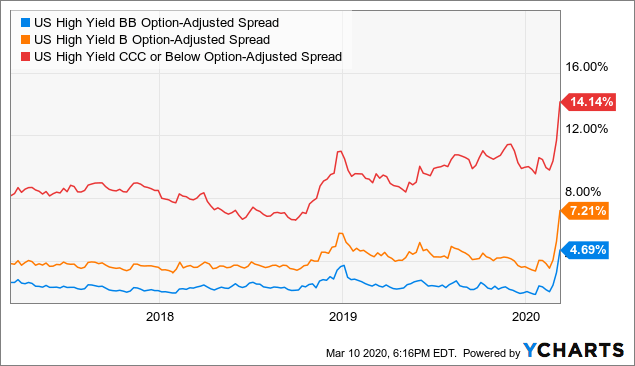
The process of purchasing a rental property can seem daunting, especially if this is your first investment. If you're not sure where to start, here are 15 essential steps to buying a rental property. These include setting up a down payment, getting records of upgrades, screening potential tenants, and many other things. These important decisions will make it easier to buy a rental property.
15 important steps to purchasing a rental home
There are several things you should do when purchasing a rental house. The first is to create a positive cash flow. This will decrease risk and increase the chances for success. While the first time buyer may have the best intentions, unexpected expenses can crop up. You can avoid these unexpected expenses by saving money before looking for a rental property. You'll be more likely to qualify for a mortgage on a rental property if you build your credit first.

Next, make a list of all your finances. The purchase of rental property is an expensive investment. This will require you to invest a significant amount of money upfront. Location is of utmost importance. You should research your local rental rates and crime rates. Also, consider the amenities nearby. As a side venture, you will need to be able to manage potential tenants and ex-tenants if you plan to rent a rental property.
Requirements for down payment
The down payment amount when purchasing investment property is critical. Investors are sometimes required to make a down payment of as low as three percent. However, the down payment for investment properties is much higher. New York City's standard amount for down payments is twenty percent. While this may seem like a high amount, consider that it represents a much lower risk for the lender. Additionally, you may be able to supplement the amount with your family gift money. The US's down payment requirements average between 20-30%.
The amount of down payment required for a rental property is generally the same as the down payment on a single-family home. Typically, investors need to pay 3 percent of the purchase price. But some lenders will require up to 20%. For example, if a $375,000 duplex was purchased, you would need at least 30 percent. With a credit score below five hundred, you may be eligible for a loan with just three percent down.
Screening tenants
If you're searching for a tenant to rent your property, it is crucial that you choose the right one. After all, you want to avoid problems like payment problems or unhappy neighbors. These problems can be avoided by carefully screening tenants before you make an investment in a rental property. Make sure to create a detailed plan for your screening process and document it for future reference. If you have questions about the legality of the screening process, it is a good idea to consult a lawyer.

Rent history reports can show information such as previous addresses, lengths stayed, and contact information regarding landlords and property management. Performing a background check will reveal criminal records and public records of a prospective tenant. The background information can also reveal if an applicant has been sued. It's a good idea that you check the rental history with the tenant.
FAQ
Is stock marketable security?
Stock is an investment vehicle that allows you to buy company shares to make money. This is done through a brokerage that sells stocks and bonds.
You can also invest in mutual funds or individual stocks. In fact, there are more than 50,000 mutual fund options out there.
The difference between these two options is how you make your money. With direct investment, you earn income from dividends paid by the company, while with stock trading, you actually trade stocks or bonds in order to profit.
In both cases, you are purchasing ownership in a business or corporation. You become a shareholder when you purchase a share of a company and you receive dividends based upon how much it earns.
With stock trading, you can either short-sell (borrow) a share of stock and hope its price drops below your cost, or you can go long-term and hold onto the shares hoping the value increases.
There are three types for stock trades. They are called, put and exchange-traded. Call and put options allow you to purchase or sell a stock at a fixed price within a time limit. Exchange-traded funds are similar to mutual funds except that instead of owning individual securities, ETFs track a basket of stocks.
Stock trading is very popular because investors can participate in the growth of a business without having to manage daily operations.
Although stock trading requires a lot of study and planning, it can provide great returns for those who do it well. If you decide to pursue this career path, you'll need to learn the basics of finance, accounting, and economics.
What is a Bond?
A bond agreement between two people where money is transferred to purchase goods or services. It is also known by the term contract.
A bond is normally written on paper and signed by both the parties. This document details the date, amount owed, interest rates, and other pertinent information.
A bond is used to cover risks, such as when a business goes bust or someone makes a mistake.
Bonds can often be combined with other loans such as mortgages. This means the borrower must repay the loan as well as any interest.
Bonds are used to raise capital for large-scale projects like hospitals, bridges, roads, etc.
When a bond matures, it becomes due. The bond owner is entitled to the principal plus any interest.
If a bond isn't paid back, the lender will lose its money.
What is a REIT and what are its benefits?
An REIT (real estate investment trust) is an entity that has income-producing properties, such as apartments, shopping centers, office building, hotels, and industrial parks. These are publicly traded companies that pay dividends instead of corporate taxes to shareholders.
They are very similar to corporations, except they own property and not produce goods.
What are the benefits of stock ownership?
Stocks can be more volatile than bonds. If a company goes under, its shares' value will drop dramatically.
However, if a company grows, then the share price will rise.
In order to raise capital, companies usually issue new shares. Investors can then purchase more shares of the company.
Companies can borrow money through debt finance. This allows them to borrow money cheaply, which allows them more growth.
A company that makes a good product is more likely to be bought by people. As demand increases, so does the price of the stock.
As long as the company continues to produce products that people want, then the stock price should continue to increase.
What is security in a stock?
Security is an investment instrument whose value depends on another company. It may be issued either by a corporation (e.g. stocks), government (e.g. bond), or any other entity (e.g. preferred stock). If the underlying asset loses its value, the issuer may promise to pay dividends to shareholders or repay creditors' debt obligations.
What is a fund mutual?
Mutual funds are pools that hold money and invest in securities. Mutual funds offer diversification and allow for all types investments to be represented. This helps to reduce risk.
Professional managers manage mutual funds and make investment decisions. Some mutual funds allow investors to manage their portfolios.
Most people choose mutual funds over individual stocks because they are easier to understand and less risky.
Statistics
- Our focus on Main Street investors reflects the fact that American households own $38 trillion worth of equities, more than 59 percent of the U.S. equity market either directly or indirectly through mutual funds, retirement accounts, and other investments. (sec.gov)
- Ratchet down that 10% if you don't yet have a healthy emergency fund and 10% to 15% of your income funneled into a retirement savings account. (nerdwallet.com)
- For instance, an individual or entity that owns 100,000 shares of a company with one million outstanding shares would have a 10% ownership stake. (investopedia.com)
- The S&P 500 has grown about 10.5% per year since its establishment in the 1920s. (investopedia.com)
External Links
How To
How to Trade on the Stock Market
Stock trading is a process of buying and selling stocks, bonds, commodities, currencies, derivatives, etc. The word "trading" comes from the French term traiteur (someone who buys and sells). Traders trade securities to make money. They do this by buying and selling them. It is one of oldest forms of financial investing.
There are many different ways to invest on the stock market. There are three types that you can invest in the stock market: active, passive, or hybrid. Passive investors simply watch their investments grow. Actively traded traders try to find winning companies and earn money. Hybrid investors combine both of these approaches.
Index funds that track broad indexes such as the Dow Jones Industrial Average or S&P 500 are passive investments. This type of investing is very popular as it allows you the opportunity to reap the benefits and not have to worry about the risks. You just sit back and let your investments work for you.
Active investing is about picking specific companies to analyze their performance. Active investors will look at things such as earnings growth, return on equity, debt ratios, P/E ratio, cash flow, book value, dividend payout, management team, share price history, etc. They then decide whether or not to take the chance and purchase shares in the company. If they feel the company is undervalued they will purchase shares in the hope that the price rises. However, if they feel that the company is too valuable, they will wait for it to drop before they buy stock.
Hybrid investing blends elements of both active and passive investing. You might choose a fund that tracks multiple stocks but also wish to pick several companies. This would mean that you would split your portfolio between a passively managed and active fund.